Part I, Part II, Part III, Part IV
A follow-up of Professor Vladimir Kozin’s comments on NATO’s Fact Sheet about relations with Russia published in December 2014. The topics to be covered in this part:
- NATO enlargement followed the same process as the expansion of the USSR and the Warsaw Pact;
- NATO tried to “drag” Ukraine into the Alliance;
- Russia has the right to demand a “100% guarantee” that Ukraine will not join NATO;
- NATO enlargement in the Balkans is destabilizing;
- NATO has advanced its infrastructure towards Russia’s borders;
- NATO was planning to base ships and missiles in Crimea;
- NATO intends to set up a military base in Georgia;
- NATO has bases all around the world.
NATO enlargement followed the same process as the expansion of the USSR and the Warsaw Pact
NATO claim: The countries of Central and Eastern Europe chose to apply for NATO membership through their own national democratic processes. This was done through debate, in peacetime conditions, and in a transparent way.
Their incorporation into the Soviet Union and the Warsaw Pact was carried out under conditions of military occupation, one-party dictatorship and the violent suppression of dissent.
Prof. Vladimir Kozin:
In the postwar years, i.e., after the end of World War II, neither the Soviet Union nor the Warsaw Pact ever expanded.
One exception: Russia regained the Kaliningrad region as well as the Kuril Islands and southern Sakhalin, as the result of decisions made by the victors of the war.
The countries of Central and Eastern Europe were never incorporated into the Soviet Union (apparently whoever created the fact sheet has a poor grasp of European history and political geography).
The Warsaw Pact was established on the principles of good will in response to the creation of NATO, and it blossomed voluntarily concurrently with NATO’s continued existence.
On the other hand, although there is no justification for it, the US military still maintains a hub of forces in Europe. Moreover, they are constantly raising the caliber of their weapons (nuclear, anti-ballistic, and conventional weapons) and gradually expanding their divisions near the Russian border, adding aircraft that can deliver nuclear weapons. In this regard, I would like to make special note of NATO’s Baltic Air Policing operation, which was launched over Lithuania, Latvia, and Estonia in March 2004. It is conducted 24/7 year-round. Pilots from 15 NATO countries have already flown in those missions.
This provocative NATO operation needs to be stopped, entirely and as soon as possible. Russia does not conduct such operations off American shores.
NATO tried to “drag” Ukraine into the Alliance
NATO claim: When the administrations of President Kuchma and President Yushchenko made clear their aspiration to NATO membership, the Alliance worked with them to encourage the reforms which would be needed to make that aspiration a reality.
When the administration of President Yanukovych opted for a non-bloc status, NATO respected that decision and continued to work with Ukraine on reforms, at the government’s request.
NATO respects the right of every country to choose its own security arrangements. In fact, Article 13 of the Washington Treaty specifically gives Allies the right to leave.
Over the past 65 years, 28 countries have chosen freely, and in accordance with their domestic democratic processes, to join NATO. Not one has asked to leave. This is their sovereign choice.
NATO has not only “tried to drag Ukraine into the Alliance,” NATO is still trying.
Although the current Ukrainian leaders would like to see Ukraine join the alliance and have scheduled a referendum on the issue, it is unlikely that the results will be encouraging. Opinions will be greatly divided across the country – the further one travels south and southeast, the fewer supporters one will find, which will further split Ukrainian society. Kiev will only get the outcome it wants if the referendum on the issue is rigged. Ukraine’s entry into NATO would completely undermine security in Europe. Germany, for example, is aware of this, and thus opposes Ukraine’s membership in the bloc.
And as far as leaving NATO: even if a country wants out, none of the alliance’s leaders would allow that to happen.
Russia has the right to demand a “100% guarantee” that Ukraine will not join NATO
NATO claim: According to Article I of the Helsinki Final Act (here) which established the Organisation for Security and Cooperation in Europe (OSCE) in 1975, every country has the right “to belong or not to belong to international organizations, to be or not to be a party to bilateral or multilateral treaties including the right to be or not to be a party to treaties of alliance.” All the OSCE member states, including Russia, have sworn to uphold those principles.
In line with those principles, Ukraine has the right to choose for itself whether it joins any treaty of alliance, including NATO’s founding treaty.
Moreover, when Russia signed the Founding Act, it pledged to uphold “respect for sovereignty, independence and territorial integrity of all states and their inherent right to choose the means to ensure their own security“.
Thus Ukraine has the right to choose its own alliances, and Russia has, by its own repeated agreement, no right to dictate that choice.
Prof. Vladimir Kozin:
The fact sheet correctly states that “Russia has the right to demand a ‘100% guarantee’ that Ukraine will not join NATO.” And what’s more, to demand such a guarantee both from the alliance as well as from Ukraine. The basis for this position has been explained above.
NATO enlargement in the Balkans is destabilizing
NATO claim: All the countries of Central and Eastern Europe which have joined NATO over the past decade have enjoyed peace, security and cooperation with their neighbours since then.
The countries in the region which aspire to membership are conducting reforms to bring themselves closer to NATO standards. These reforms enhance democracy and security in each country.
The countries in the region have played a significant role in NATO’s operations in Afghanistan and Kosovo, providing training to the Afghan forces and helping to provide a safe and secure environment for all people in Kosovo. This is a direct contribution to stability in the broader Euro-Atlantic area.
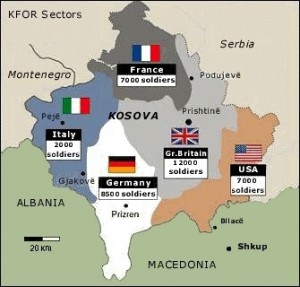
Prof. Vladimir Kozin:
NATO’s expansion into the Balkans is actually a destabilizing factor. The alliance’s many forces have not brought total peace to that region, nor have they eliminated cross-border crime, drug or human trafficking, or illegal weapons stockpiles. The introduction of a large combined NATO military base in Kosovo and Metohija, as well as naval and air bases in Bulgaria and Romania, has already prompted a flare-up of tensions in the region. The deployment of the US missile-defense system in Deveselu (Romania) has even more deeply aggravated the military and political situation in the region.
NATO has advanced its infrastructure towards Russia’s borders
NATO claim: Relations between NATO and Russia are governed by the Founding Act on Mutual Relations, Cooperation and Security, agreed in 1997 and reaffirmed at NATO-Russia summits in Rome in 2002, and in Lisbon in 2010.
In the Act, the sides agreed that:
“In the current and foreseeable security environment, the Alliance will carry out its collective defence and other missions by ensuring the necessary interoperability, integration, and capability for reinforcement rather than by additional permanent stationing of substantial combat forces. Accordingly, it will have to rely on adequate infrastructure commensurate with the above tasks.“
This is exactly what NATO has done, transparently and in full accordance with the Founding Act.
Prof. Vladimir Kozin:
My comments on this issue have been given above. NATO does not have, nor has it ever had, any reason or basis for advancing its military infrastructure toward Russia’s borders.
NATO was planning to base ships and missiles in Crimea
NATO claim: This idea has never been proposed, suggested or discussed within NATO.
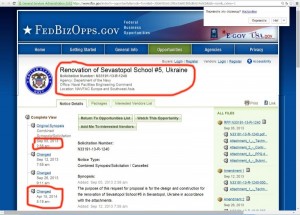
Prof. Vladimir Kozin:
This was more than just a dream – the US and NATO continually worked to bring this idea to fruition, by dispatching their warships and conducting large-scale military exercises on training grounds in Ukraine. In addition, one secondary school in Sevastopol had been equipped to accommodate the alliance’s regional headquarters. The US and Ukraine are involved in research and development intended to create the elements of a missile-defense system.
The current leaders of Ukraine intend to transition to NATO’s standards and weapons systems, planning to transform the entire country into a military base and training ground for NATO’s Rapid-Reaction Force.
Three NATO countries (the US, Poland, and Lithuania) are already advocating for lethal weapons for Ukraine. And the leaders in Kiev have repeatedly demanded to receive such weapons.
NATO intends to set up a military base in Georgia
NATO claim: NATO agreed at the Wales Summit to offer Georgia a substantial package of assistance to strengthen Georgia’s defence and interoperability capabilities with the Alliance. As agreed with Georgia, a training facility will be set up in Georgia to contribute to the training and interoperability of Georgian and Alliance personnel.
This is a training centre, not a military base.
This initiative will result in closer cooperation with Georgia’s sovereign and internationally-recognised government, and improved training and democratic control for its armed forces. As such, it will contribute to stability by making Georgia’s armed forces more professional, and by reinforcing the controls over them.
Prof. Vladimir Kozin:
Yes, NATO and the United States intend to establish a military base in Georgia and supply it with military equipment, technology for communications and control, and also intelligence data. The port of Batumi is already a permanent NATO naval base.
NATO has bases all around the world
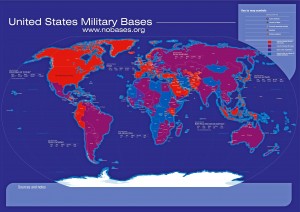 NATO claim: NATO’s military infrastructure outside the territory of Allies is limited to those areas in which the Alliance is conducting operations.
NATO claim: NATO’s military infrastructure outside the territory of Allies is limited to those areas in which the Alliance is conducting operations.
Thus the Alliance has military facilities in Afghanistan for the support of the ISAF mission and the forthcoming Resolute Support mission, and in Kosovo for the KFOR mission.
NATO has civilian liaison offices in partner countries such as Georgia, Ukraine and Russia. These cannot be considered as “military bases”.
Prof. Vladimir Kozin:
NATO has bases all around the world. This is a well-known fact and there is no reason to try to deny it – the list of such military bases is huge. The Pentagon claims to have 150 “forward operating” military bases.
Follow-up topics:
- NATO’s operation in Afghanistan was a failure;
- The NATO-led mission in Afghanistan failed to stop the Afghan drugs trade;
- NATO’s operation over Libya was illegitimate;
- NATO’s operation over Kosovo was illegitimate;
- The cases of Kosovo and Crimea are identical;
- Russia’s annexation of Crimea was justified;
- The Ukrainian authorities are illegitimate.
Professor Vladimir Kozin was directly engaged in NATO-related issues during his 40-years-long professional career in the Russian Foreign Ministry. He was one of the leading negotiators from the Russian side at the most of the Russia-US diplomatic and military talks on disarmament, strategic deterrence and other issues in 1990s.
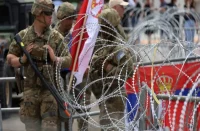
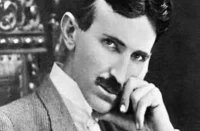
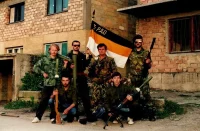
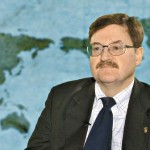
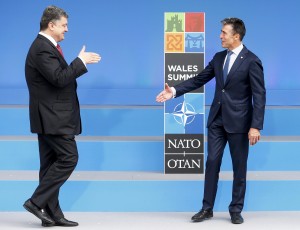











Pingback: Countering the NATO propaganda on Russia (VI) | Oriental Review
Pingback: Countering NATO Propaganda on Russia: NATO Intervention in Afghanistan, Kosovo, Libya, Ukraine | THE POLICRATICUS INTERNATIONAL
Pingback: Countering NATO Propaganda on Russia | CRUCIFIED KOSMET
Pingback: America’s rising danger of imperial overstretch | Thai Military and Asian Region